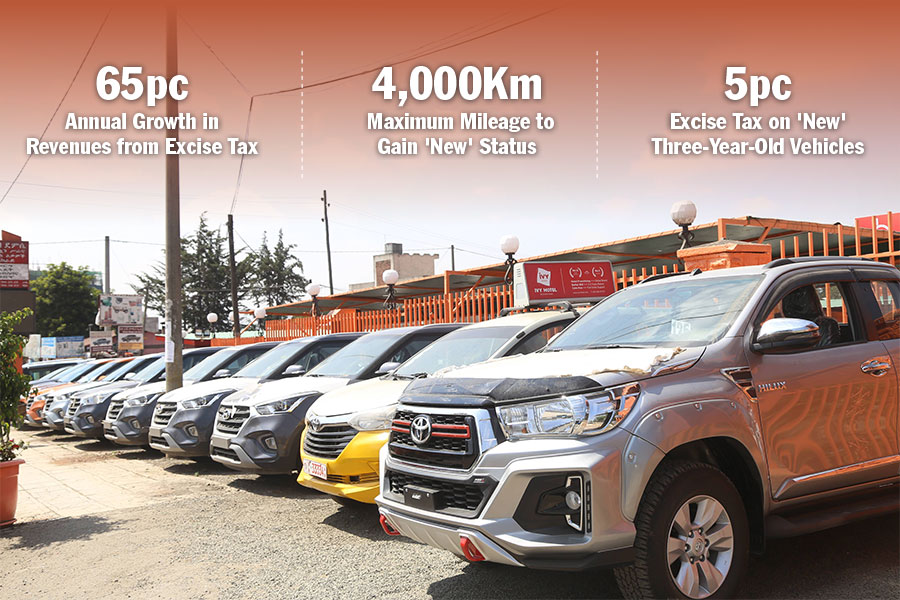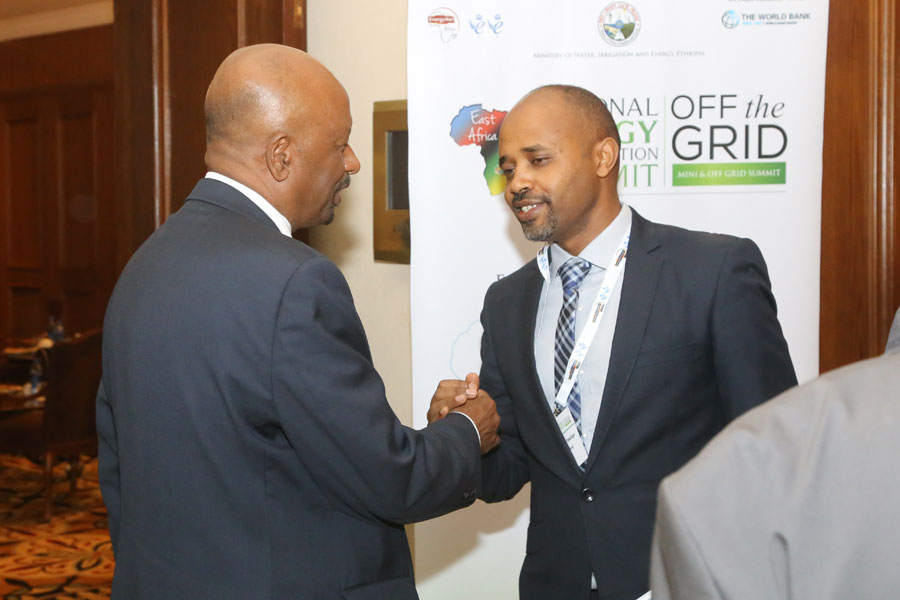
Radar | Oct 16,2021
Jan 1 , 2022.
It is a norm to emphasise grand structural changes to address the myriad political processes in deeply polarised societies and fractured systems such as in Ethiopia. Criticisms on any issue are often externalised to an adversary, with rarely an attempt at self-reflection. Foundational changes are suggested as an anecdote, if not haphazardly.
It is not to imply that structural, institutional and historical outcomes do not contribute to inequalities and injustices that bring insecurity and deprive opportunities. It would be unreasonable to argue that these are not factors in the current state of Ethiopia. If there would be an issue that has won consensus across the dividing lines, the current constitution, promulgated in 1995, needs reform. The motivation for demanding constitutional reforms varies, as the scope and directions of such changes.
The need for structural reforms should not be viewed as unexpected. All systems are manufactured social constructions, often erected by a collection of individuals who, even if well-intentioned, could not peer into the future to consider every possible implication of the laws written and institutions put in place. To err is only human, after all.
What usually does not make it into academic papers and policy proposals as critical elements to establishing a just and stable society are ingredients such as goodwill, understanding, and empathy. These components have become ever rarer at a time of rapid technological development, economic inequalities and political exclusion on the domestic front. Globally, uncertainty reeling under the impacts of a public health crisis, unquenched grievances, misinformation and disinformation, and the rise of political rage and hysteria has not helped the situation for the better. It is also increasingly a multipolar global order.
It has become a world where a large number of people, from citizens in the advanced economies to the global south, is looking for gratification, a state where political positions are constantly appeased and reaffirmed. Centrism is no less than a mark of indecision; adjusting views based on new information is selling out; calling for calm and reflection is a cover to sustain the status quo or a show of support to the other side. There is always an “us,” a righteous in-group, and a “them,” closed-minded reactionaries opposed to reform and change.
One of the appalling outcomes of rejecting the “other” is perceptible in Ethiopia. It is never wise to reduce the complex issues that have set different countries on widely diverse paths of prosperity and peace. Still, it would not be too contrived to put forward a lack of compassion as a significant factor. It is deeply in need as one year ends and another begins.
There is no shortage of evidence that political discourse has been scarping the lowest moral depth for quite a while, at least in the mainstream. The experience of the current brutal civil war is one where most of the societies’ failings boiled to the top. Even in contrast to the 17-year civil war in the 1970s and 1980s, the horrors of this have been especially despicable.
The immediate factor for the ongoing war might have been the postponement of the 2020 general elections, but a clear trajectory towards showdown began much earlier. The genesis is in the mishandled power struggle within the Ethiopian People’s Revolutionary Democratic Front (EPRDF). For over a year after that, the merger by the constituent parties of the EPRDF into the Prosperity Party (PP), and the TPLF, which rejected the call to join, did not have a shortage of issues to squabble over. They finally settled on the postponement of the election and the mutual delegitimisation of one another as a point of no return.
Regrettably, it was a political difference that could have been addressed through dialogue, negotiations and compromises. A militarized conflict was needless. Ironically, both swear that they have always been committed to peace and that their end goal was never war. They both insist the war was imposed on them, and they were left with no choice but to fight in an existential struggle. But words are cheap while the era of horror they have inaugurated has been costly beyond what could have been imagined.
Even then, their supporters could have helped them steer the country away from a disaster. Yet, they elected to pursue the agenda of the total annihilation of the “other.” As the heavy guns rumbled, communications crumbled. All sides refused to communicate, and their engagement on social media degenerated into daily attempts to dehumanise, mock and humiliate one another. Everyone turned inward and forgot the wisdom of how to listen deeply.
The death knell was rung, as it usually is, by the refusal to recognise the pain and insecurities of the other side. This is the last stage where people on either side of the aisle lack any empathy for one another. Their pain and suffering gets all the attention and deserves to be avenged; that of the other is a constructed fictional narrative employed as a motive to expand power and influence.
Robbing the "other" of its humanity is a tactic of war. The conflict in Ethiopia is along the fault lines of power, culture and history - many pretend that it is not. As a result, every person with ethnic affiliation to the parties in the war needs to be mobilised in the effort of the war as a combatant either on the battlefront or on legacy and digital media outlets. The dehumanisation of the “other” thus helps address any moral inhibition towards pursuing war for total annihilation. Empathy could be a weakness that risks defeat, therefore, cannot be allowed.
Institutional and structural reforms and dialogues that lead to political settlement are long overdue. They are also a constantly evolving process that could never be perfect. But, for anything of the sort to work, it needs goodwill, empathy, the integrity to reflect on the biases of one’s "in-group", and the habit of reaching to the "other" side to recognise their source of insecurity.
It remains to be the path left not trodden. A new year could be an opportunity to break from the horror of the past and to build the foundations for a more open, tolerant and inclusive society. Such a society has a better chance of assuring security and providing opportunities to its citizens regardless of identity.
It may sound cliche to have a list of wishes at the beginning of a new calendar year. The moment of desperation calls for it, though. May the year 2022 be a time for Ethiopians to have the willingness to communicate, develop the ability to persuade and compromise, have empathy and compassion for the "other", and cultivate the culture of deep listening!
PUBLISHED ON
Jan 01,2022 [ VOL
22 , NO
1131]

Radar | Oct 16,2021

Commentaries | Jun 07,2025

Fortune News | Jul 24,2021

Commentaries | Jan 12,2019

Radar | Oct 18,2025

Fortune News | Mar 30,2019

Commentaries | Apr 30,2021

Fortune News | Jan 25,2020

Life Matters | May 24,2025

Radar | Sep 02,2023

Photo Gallery | 180953 Views | May 06,2019

Photo Gallery | 171145 Views | Apr 26,2019

Photo Gallery | 162286 Views | Oct 06,2021

My Opinion | 137339 Views | Aug 14,2021

Dec 22 , 2024 . By TIZITA SHEWAFERAW
Charged with transforming colossal state-owned enterprises into modern and competitiv...

Aug 18 , 2024 . By AKSAH ITALO
Although predictable Yonas Zerihun's job in the ride-hailing service is not immune to...

Jul 28 , 2024 . By TIZITA SHEWAFERAW
Unhabitual, perhaps too many, Samuel Gebreyohannes, 38, used to occasionally enjoy a couple of beers at breakfast. However, he recently swit...

Jul 13 , 2024 . By AKSAH ITALO
Investors who rely on tractors, trucks, and field vehicles for commuting, transporting commodities, and f...

Nov 2 , 2025
The National Bank of Ethiopia (NBE) has scrapped the credit-growth ceiling that had s...

Nov 2 , 2025 . By SURAFEL MULUGETA
The burgeoning data mining industry is struggling with mounting concerns following th...

Nov 2 , 2025 . By YITBAREK GETACHEW
Berhan Bank has chosen a different route in its pursuit of a new headquarters, opting for a transitional building instea...

Nov 2 , 2025 . By BEZAWIT HULUAGER
Nib International Bank S.C. has found itself at the epicentre of a severe governance...